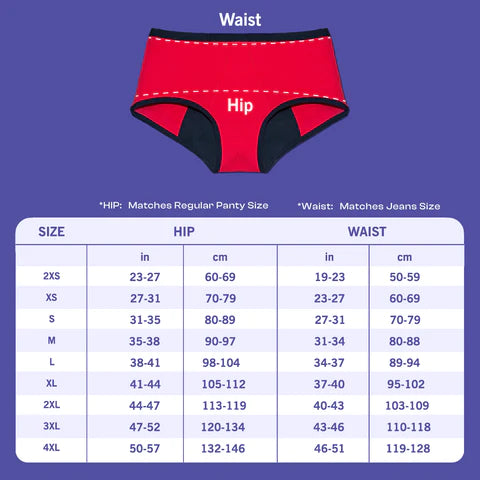Living with endometriosis can be challenging, with the persistent pain disrupting daily life. Many women look for treatment that goes beyond prescription drugs which led to our investigation of efficient cures for endometriosis pain.
We'll go through seven at-home cures in this guide to help you manage and get rid of endometriosis discomfort.
What is Endometriosis
In simple terms, Endometriosis is a medical condition where tissue similar to the lining of the uterus grows outside it, which results in pain and discomfort. This misplaced tissue can lead to pain during periods, intercourse, and even bowel movements. The impact on daily life can be significant and can affect day-to-day work or relationships.
Traditional treatments may not always provide complete relief. Relying solely on medications may not address the root cause of this medical condition, the side effects can be bothersome. That is why, for some women home remedies offer a holistic approach, often with fewer side effects. to This helps many women to take control of their well-being and explore options beyond conventional medical interventions.
Also read: What is Retrograde Menstruation and what are the causes and symptoms
Home Remedies for Endometriosis Pain
We have created a list of seven home cures designed specifically to assist you in managing and easing the chronic pain brought on by endometriosis. Let's examine the ease of use and efficiency of these treatments.
1. Foods To Help With Endometriosis Pain
Ladies, you can start treating endometriosis discomfort with small yet effective dietary adjustments. Some foods have anti-inflammatory properties that could help reduce endometriosis pain. These foods include omega-3 fatty acid-rich fatty fish, like salmon and mackerel fish.
Also, consuming leafy greens, like spinach, can help lower inflammation. You can begin your journey towards managing endometriosis pain with the nurturing power of dietary remedies by choosing carefully what to eat each day.

2. Herbal Teas
In your attempt to control endometriosis pain, leaning into the comforting warmth of herbal teas can be a reassuring tactic. Teas made from chamomile and ginger, which are well known for their inherent anti-inflammatory qualities, provide a mild yet efficient solution. These teas can reduce discomfort and promote relaxation.
In addition to that, Green tea's anti-inflammatory properties are facilitated by its antioxidant content, which adds even more help for pain management.
Herbal teas are a great addition to your collection of at-home treatments for endometriosis pain since you may adopt them into your daily routine to create a relaxing ritual that benefits your general health.
3. Heat Therapy
When it comes to treating endometriosis pain, heat therapy is a straightforward yet powerful ally. Applying heat—either with warm baths or hot water bottles—can significantly reduce pelvic muscle tension and endometriosis-related discomfort.
By improving blood flow, this technique lowers stress and offers a reassuring break. Including heat treatment in your regimen gives you a useful and approachable way to practice self-care.
Experiencing the comforting heat offers a healthy, natural way to address the ongoing difficulties caused by endometriosis pain.
4. Gentle Exercise
Light exercise is a helpful and approachable tactic for treating endometriosis pain. Exercising, such as walking or yoga, improves circulation and lowers inflammation, which benefits general health. These carefully designed, low-impact activities reduce pain without adding undue stress.
By making exercise a regular part of your life, you give your body the tools it needs to deal with endometriosis more thoroughly.
Beyond just providing temporary pain relief, mild exercise also improves mental health and helps people maintain an optimistic outlook in the face of ongoing discomfort. So, we highly recommend you include these mindful exercises in your daily routine.
5. Practice Relaxation Techniques
Do you know that methods like mindfulness, meditation, and deep breathing are essential for reducing the psychological and physical effects of chronic pain?
By making time for these activities, you establish a haven of peace amidst the stress, which helps your body and mind relax.
For example, deep breathing exercises help manage stress, which plays a significant role in the discomfort associated with endometriosis, in addition to promoting relaxation.
By regularly using these strategies, you develop a resilient attitude that makes overcoming obstacles easier.
6. Epsom Salt Baths
You must be thinking, does Epsom Salt help with Endometriosis?
Made mostly of magnesium and sulfate, Epsom salt has exceptional muscle-relaxing qualities. This herbal medicine not only eases bodily discomfort but also fosters a calm atmosphere conducive to mental rest.
When you dissolve Epsom salt in warm bathwater and submerge yourself, the minerals are absorbed via the skin, which helps to ease endometriosis-related discomfort and promotes muscular relaxation.
Beyond the physical plane, the soothing influence provides an environment of tranquility that enhances general well-being. Taking Epsom salt baths daily adds a relaxing and joyful ritual to your routine and offers relief from the ongoing difficulties caused by endometriosis.

7. Lifestyle Adjustments
The impact of lifestyle modifications is vital when it comes to endometriosis management. Modest but effective daily habit changes can go a long way toward relieving persistent discomfort. Reducing stress, getting enough sleep, and engaging in regular exercise become essential components of managing endometriosis.
It is recognized that stress exacerbates the symptoms of endometriosis; nevertheless, stress can be reduced by engaging in mindful activities. Making enough sleep a priority creates an atmosphere that is favorable for recovery and adaptability. Mild exercises also help maintain mental and emotional balance in addition to physical wellness.
In summary - Endometriosis home remedies
Our primary objective is to provide you with practical tools for managing endometriosis at home. Each of these therapies can improve your health while you are in the cozy comfort of your own home. However, you must understand that they do not replace professional medical advice.
If you find that your symptoms persist or intensify, it is imperative to consult with a gynecologist immediately. We encourage you to share your thoughts and experiences. Your insights may resonate with others facing similar challenges.



